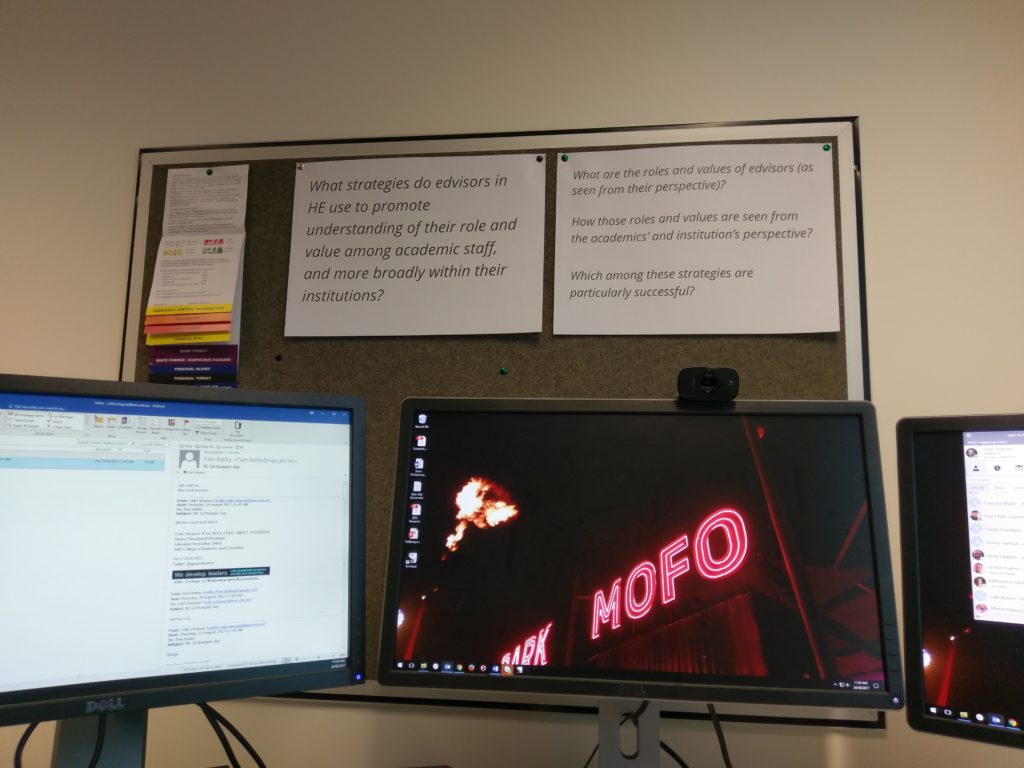There’s been something about the updated research questions that I’ve been working with that just hasn’t been sitting right. These are the questions:
What strategies do edvisors in HE use to promote understanding of their role and value(s) among academic staff, and more broadly within their institutions?
What are the roles and value(s) of edvisors? (as seen from their perspective)
How are those roles and value(s) seen from the academics’ and institution’s perspective?
Which among these strategies are particularly successful?
It’s only a small thing perhaps and maybe it’s important in sharpening focus but it bugs me that there is an implicit assumption that it is the sole responsibility of edvisors to make academics and the institution value them and their work. I can understand that this isn’t the job of academics – though it would be nice if some of them made more of an effort – but surely the institution itself, and by that I guess I mean institutional management, has a part to play as well. After all, why provide expert support if you don’t intend for it to be used and for it to work as effectively as possible.
So I’m changing the question. This is partially also because I think it will be valuable to gather some data about how different institutions organise their edvisor support units and what impact this has on their efficacy. With the old questions, there isn’t really room for this.
I’ve also found the sub-questions a little clunky and while I think that the value/values issue is interesting, I can still cover that in the survey and interview questions.
Which brings me to this.
What strategies are used in HE to promote understanding of the roles and value of edvisors among academic staff, and more broadly within the institution?
How do edvisors see their role and value in Higher Education institutions?
How are edvisor roles understood and valued by academics and HE management?
Which among these strategies are the most effective and why?
The ordering still seems slightly odd and while it’s been suggested to move the main question (what strategies…?) to question 3, this seems to miss the main point of the research. (Which is a worry in itself but maybe that indicates that I need to communicate a little more with my supervisors)
All of this brings me to the Pat Thomson journal question suggestion du jour – “The best advice I’ve been given about the PhD was…” that it’s My PhD and I need to own it. This doesn’t mean that I won’t change things based on advice but I need to believe in what I’m writing and I didn’t believe the promoting understanding was the sole responsibility of edvisors.
I attended the ASCILITE Spring in Research Excellence School this week – 2 solid days of workshopping and discussing research ideas. I was hoping to pin down a methodology – I think I know what I want to do but I’m not sure if it’s the best way because I don’t know what all of the options are and what the language is surrounding my approach. I now have two well regarded books on the matter though – Creswell’s Research Design: qualitative, quantitative and mixed methods approaches (2014) and Saldana’s The coding manual for qualitative researchers (2015) so I’m hoping that between the two of these, I can figure it out.


